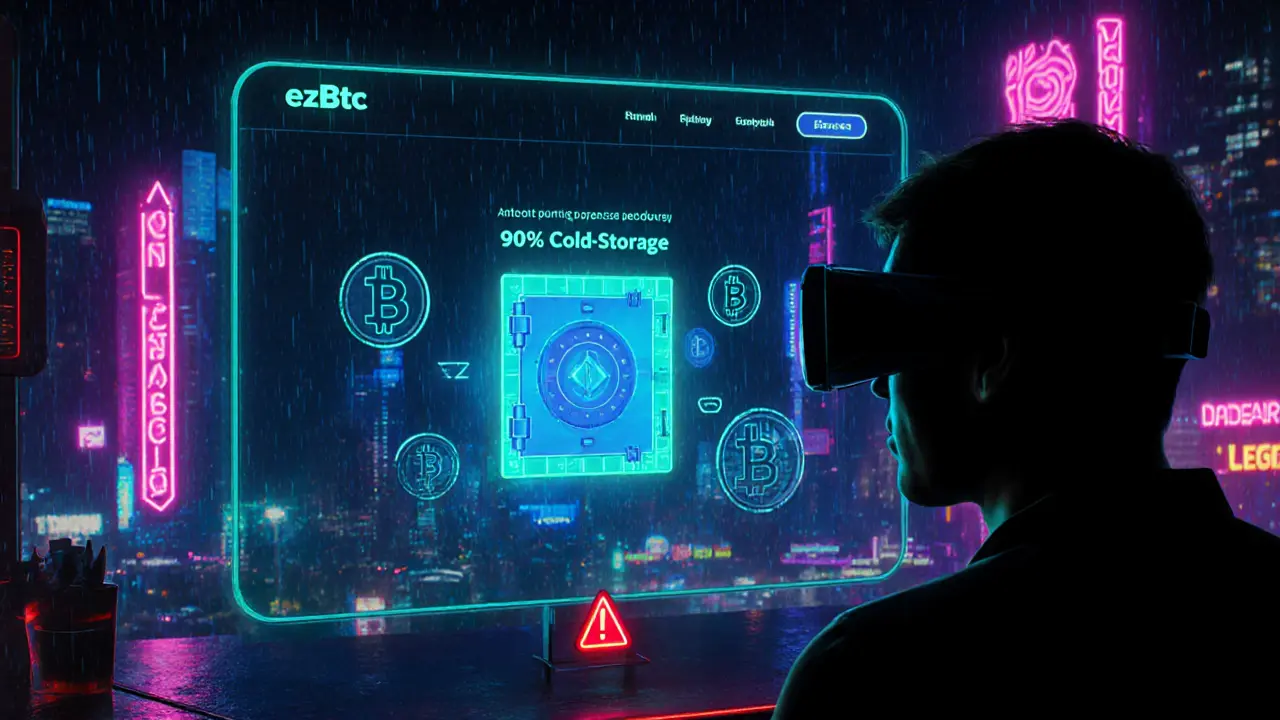An in‑depth ezBtc review covering its promised features, fee structure, the $13M fraud uncovered by the BCSC, comparison with legit exchanges, and tips to avoid similar scams.
Read MoreBCSC Investigation
When working with BCSC investigation, a systematic review of blockchain compliance, security practices, and regulatory actions targeting crypto platformsBlockchain Compliance and Security Committee probe, you’re stepping into a field that ties together exchange safety, voting transparency, and the legal landscape of digital assets. The investigation often starts by auditing a cryptocurrency exchange, online platforms where users trade digital assets for weak KYC, hidden fees, or smart‑contract bugs. From there, analysts assess how those security gaps could affect blockchain voting, voting systems that record ballots on a distributed ledger and whether the same vulnerabilities might compromise election integrity. In short, the BCSC investigation links exchange audits, voting mechanisms, and regulatory oversight into a single compliance narrative.
One of the hottest topics in recent BCSC reports is crypto mining regulation, government policies that restrict or shape Bitcoin and other proof‑of‑work mining operations. The New Brunswick mining moratorium, for example, shows how a regional power policy can force miners to relocate, which in turn reshapes the network’s hash rate and influences exchange liquidity. At the same time, the BCSC investigation keeps an eye on NFT anti‑counterfeiting, technology that uses non‑fungible tokens to create tamper‑proof product passports. By attaching a unique NFT to a physical good, manufacturers can prove authenticity, and investigators can trace counterfeit rings back to their source. Both mining rules and NFT security measures are evaluated for how they affect overall market stability and user trust.
Why Proof of Stake Matters in the BCSC Landscape
The shift from proof‑of‑work to Proof of Stake (PoS) is another pillar that the BCSC investigation monitors closely. PoS reduces energy consumption, which eases pressure on regulators who worry about the environmental impact of mining. At the same time, PoS introduces new attack vectors like stake‑centralization, which could undermine the same voting transparency the BCSC aims to protect. By comparing PoS token economics with traditional mining models, investigators can forecast how staking rewards might concentrate power among a few large holders, potentially skewing voting outcomes on governance proposals. This connection between consensus mechanisms and voting fairness is a core part of the BCSC’s risk‑assessment framework.
Below you’ll find a curated collection of articles that dive deeper into each of these areas. From detailed exchange reviews and mining policy breakdowns to step‑by‑step guides on using NFTs for anti‑counterfeit purposes, the posts under the BCSC investigation tag give you the tools to understand how security, regulation, and technology intersect in the crypto world. Keep reading to see real‑world examples, data‑driven analyses, and practical advice that will help you navigate the evolving landscape of blockchain compliance.
